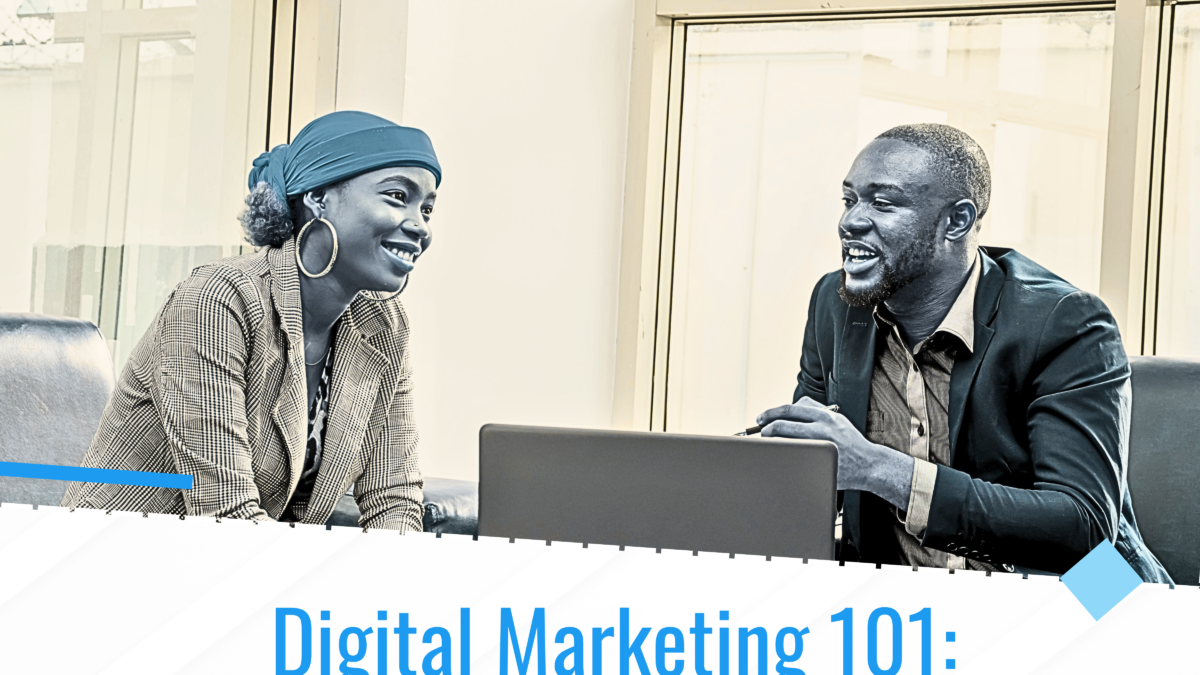Digital marketing involves various strategies which have evolved over the years. With businesses harnessing the power of the internet to reach their target audiences effectively, digital marketing encompasses a plethora of techniques, including social media marketing, search engine optimization, content marketing, email marketing, and more.
This guide aims to demystify the fundamentals of digital marketing, offering insights into its diverse channels, best practices, and the ever-changing landscape of online consumer behavior. Whether you’re a seasoned marketer or just starting, continue reading to unlock the secrets of successful digital marketing.
Why is Digital Marketing Important?
Digital marketing is important in today’s business for several reasons:
Wider Reach
It enables businesses to reach a wider audience worldwide, transcending geographical boundaries, and time zones.
Cost-Effectiveness
When compared to traditional marketing methods like print or television, digital marketing is often more affordable, making it accessible to businesses of all sizes.
Targeted Advertising
Digital marketing allows for precise targeting-based advertising, you can focus on certain demographics, interests, and behaviors, ensuring that marketing efforts are directed toward the most relevant audience.
Measurable Results
Digital marketing offers analytics tools that provide real-time insights into campaign performance, allowing business owners to track metrics such as website traffic, conversion rates, and return on investment (ROI)
Adaptability and Flexibility
Digital marketing strategies can be quickly adjusted and optimized based on data analysis and market trends, ensuring the relevance and effectiveness of your business in a rapidly changing environment.
Engagement and Interaction
It facilitates direct engagement with customers through various channels like email, social media, and blogs, fostering relationships and building brand credibility and loyalty.
What You Need to Start Your Digital Marketing Journey
To start your digital marketing journey, you’ll need:
Clear Goals and Objectives
Define what you want to achieve with your digital marketing efforts. It may be to increase your brand awareness, generate leads, drive website traffic, or boost sales, having clear goals will guide your strategies and help measure success.
Understanding of Your Target Audience
Know your audience’s pain points, demographics, interests, and online behavior. This understanding will help you tailor your digital marketing campaigns to resonate with your target audience and increase engagement and conversions.
Website and Online Presence
A well-designed and user-friendly website serves as the hub of your digital marketing activities. Ensure your website is optimized for search engines (SEO), offers valuable content to visitors, and is mobile responsive. Additionally, establish a presence on relevant social media platforms and other online channels where you can get to your audience.
Content Strategy
Content is at the heart of digital marketing. Develop a content strategy that aligns with your goals and resonates with your target audience. Create high-quality and relevant content such as videos, blog posts, infographics, and social media posts to engage your audience and provide value.
Analytics and Measurement Tools
Utilize analytical tools such as social media insights, Google Analytics, and email marketing metrics to track the performance of your digital marketing campaigns. Monitor key performance indicators (KPIs) such as website traffic, engagement metrics, conversion rates, and ROI. Analyzing your data will help you understand what’s working well and know where to make improvements.
Branches Of Digital Marketing
Here are six branches of digital marketing:
Search Engine Optimization (SEO)
SEO involves optimizing your website and online content to improve its visibility in search engine results pages (SERPs). This includes;
- keyword research
- On-page optimization
- Technical optimization
- Link building
- And creating high-quality content that resonates with both users and search engines.
Search Engine Marketing (SEM) / Pay-Per-Click (PPC) Advertising
SEM involves placing ads on search engines like Google, where advertisers bid on keywords relevant to their target audience. PPC ads appear at the top of search results and advertisers pay a fee each time a user clicks on their ad. SEM/PPC campaigns require;
- Keyword research
- Ad copy creation
- Bid management
- And ongoing optimization to maximize ROI.
Social Media Marketing (SMM)
SMM involves promoting your brand, products, or services on social media platforms like Facebook, Instagram, Twitter, LinkedIn, and TikTok. It includes;
- Creating engaging content
- Paid advertising campaigns
- Interacting with followers
- And analyzing metrics to measure performance and engagement.
Content Marketing
Content marketing focuses on creating and distributing valuable, useful, relevant, problem-solving, and consistent content to attract and retain a clearly defined audience. Content can take various forms including;
- Blog posts
- Articles
- Videos
- Infographics
- Podcasts
- And ebooks.
The goal is to build trust with your audience while driving profitable customer action.
Email Marketing
Email marketing involves sending targeted messages to your email subscribers’ inboxes to nurture leads, build relationships, and drive conversions. Effective email marketing campaigns include;
- Segmenting your audience
- Personalizing messages
- Crafting compelling subject lines and content
- Optimizing for mobile devices
- And analyzing metrics such as open rates and click-through rates.
Influencer Marketing
Influencer marketing leverages the influence of individuals with large and engaged followings on social media platforms to promote products or services. Brands collaborate with influencers to reach their target audience authentically and leverage their credibility and trust. Influencer marketing campaigns involve:
- Identifying suitable influencers
- Negotiating partnerships
- And measuring the impact of collaborations on brand awareness and sales.
Conclusion
Digital Marketing 101 serves as a foundational guide for navigating online promotion. From understanding the importance of digital marketing to exploring its various branches like SEO, SEM, SMM, content marketing, email marketing, and influencer marketing, this introductory journey equips marketers with essential knowledge and strategies to thrive in the digital realm.


